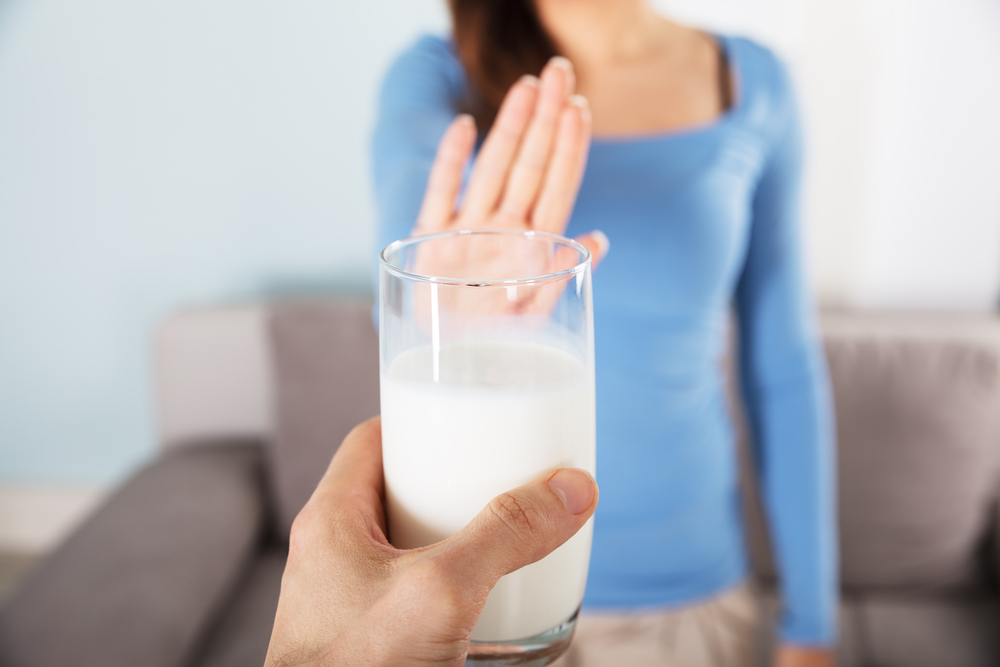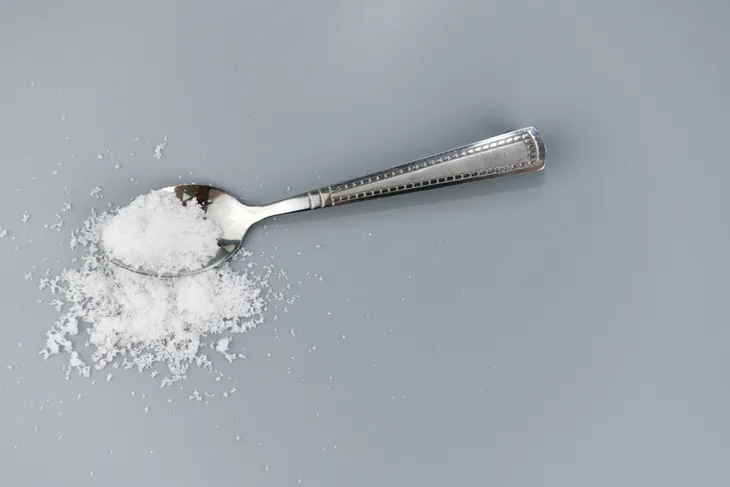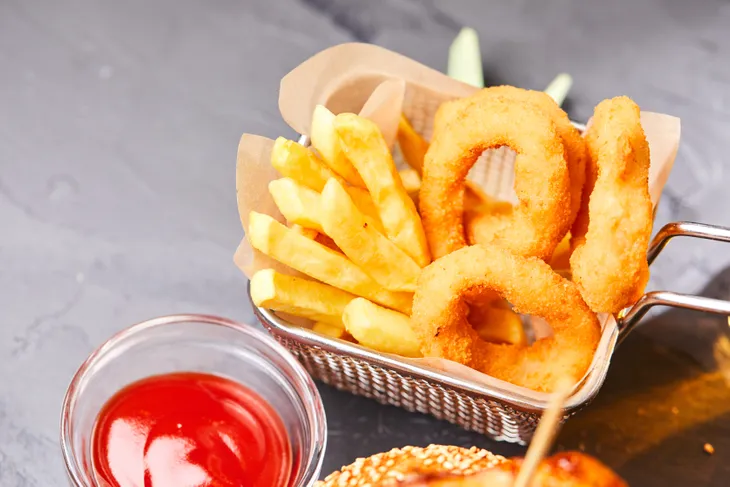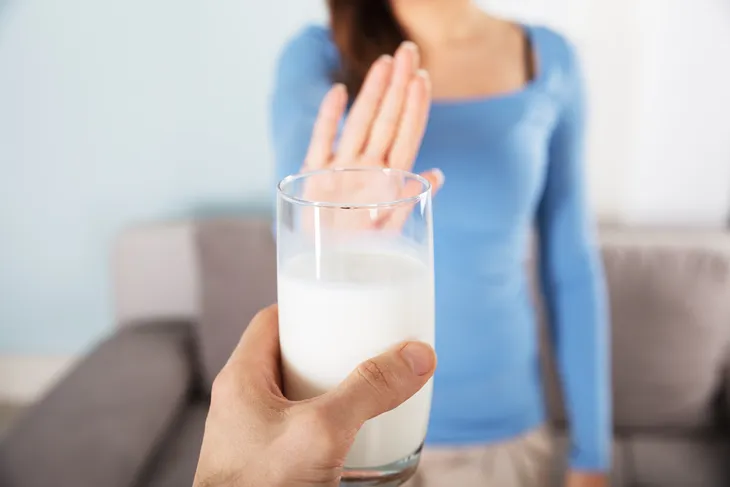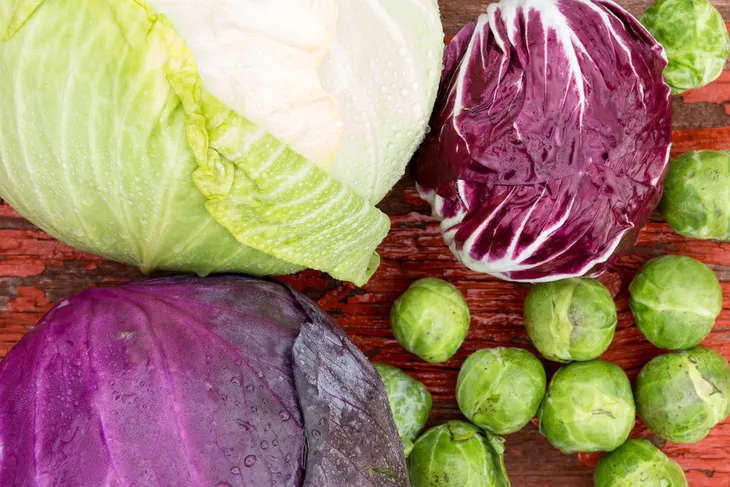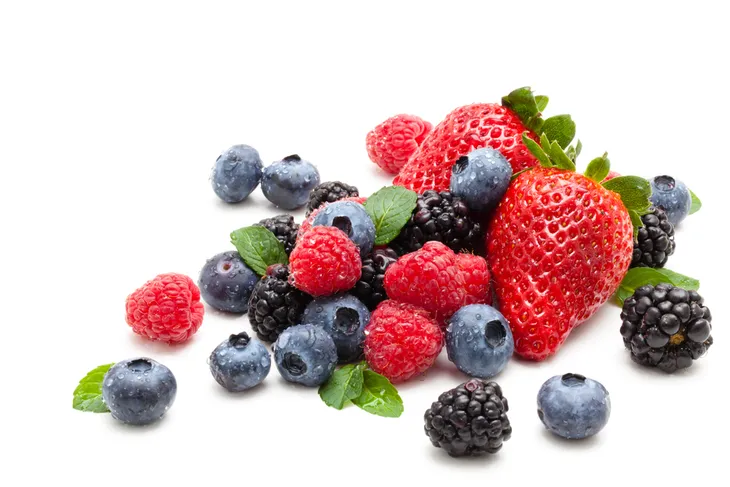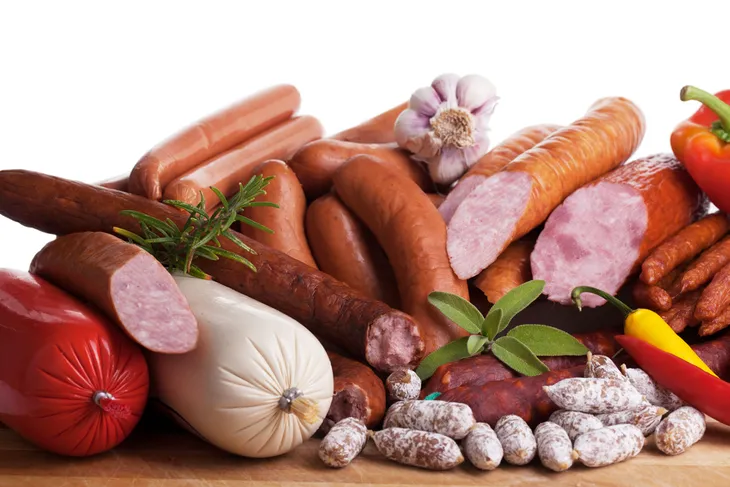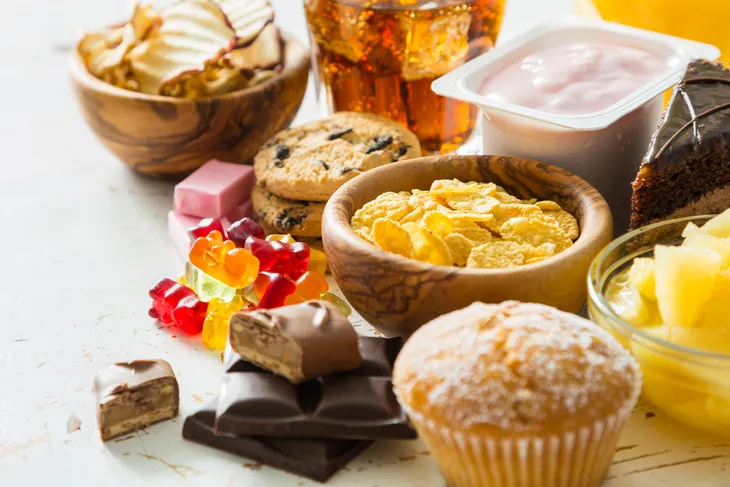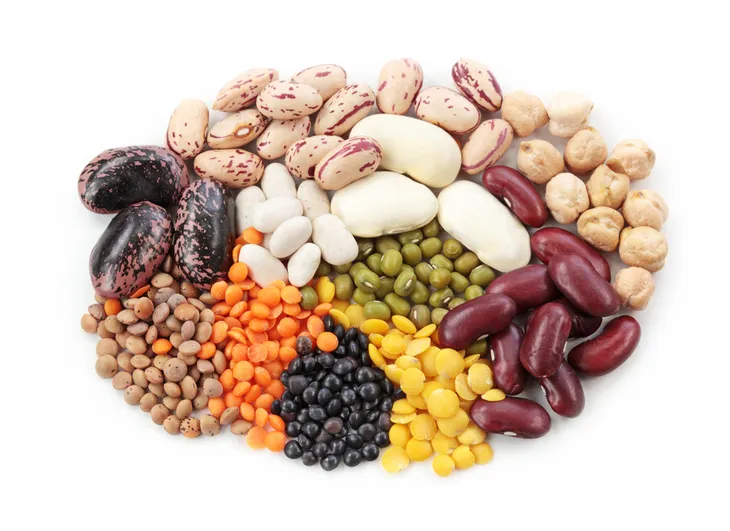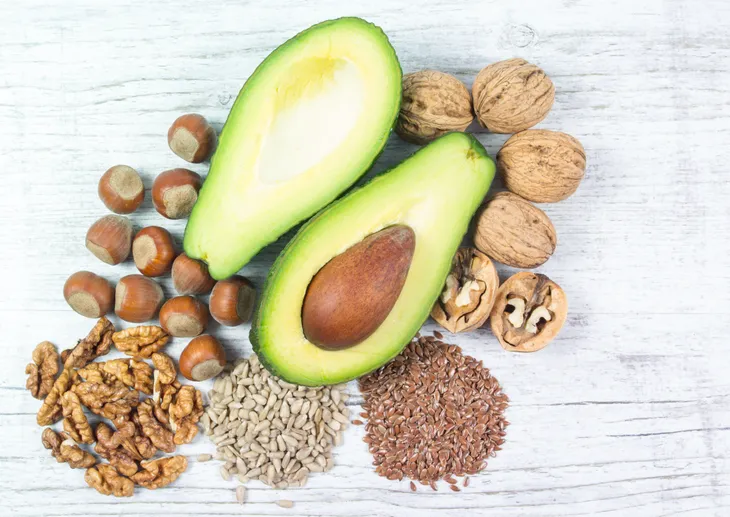Food is fuel for our body. This is why it’s so important to eat healthy. Our body isn’t going to work if all we’re feeding it is high fat, pre-packaged, overly processed foods. This is even more important for people with conditions like chronic obstructive pulmonary disease (COPD).
COPD is a chronic inflammatory lung disease that “causes obstructed airflow from the lungs,” says the Mayo Clinic. In most cases it’s caused by smoking, but can also be a result of genetics, air pollution, or workplace exposure. The main symptoms of COPD are difficulty breathing, cough, mucus production and wheezing, adds the source. To help reduce these symptoms, it’s important to keep the body healthy by maintaining a healthy weight and eating a well rounded diet which means avoiding the following foods…
Salt
A little sodium here and there in our diet isn’t so bad, but we should really try to limit the amount of salt we consume, especially people with COPD. Eating too much salt can be hard on the lungs because it causes the body to retain fluids, explains Healthgrades. This can increase blood pressure and lead to shortness of breath. If you’re concerned about how much salt you’re eating, talk to your doctor and find out what they recommend.
The hardest thing about limiting salt is that its in a lot of the food we eat, particularly if you tend to eat out at restaurants or buy processed or pre-packaged foods. When shopping at the grocery store, make a conscious effort to eat more fresh foods. When buying pre-packaged or processed foods, read the labels. You might be surprised to learn how much sodium is in the foods we eat on a daily basis. Healthgrades recommends looking for products with 140-mg or less of sodium per serving.
Fried Foods
Like many of the other foods on this list, greasy, fried foods have no place in a healthy diet. They are extremely bad for our digestion. In fact, high fat, fried foods are among the worst foods we could possibly eat and unfortunately, they make up a large part of many Americans’ diet.
“The breakdown of fats takes longer in the digestive system and a sensation of bloating can occur in the abdomen,” writes News Medical. “The feeling of being bloated causes discomfort to the patient. This makes it difficult to take full breaths as the diaphragm hurts due to the extra gas produced by the digestive juices.”
In addition to the unwanted bloating, News Medical warns that fried foods are also a huge contributor to weight gain. This food is typically responsible for that notoriously hard-to-lose fat around the abdomen. This extra fat puts pressure on the diaphragm making it difficult to breath. Avoid eating foods like french fries, onion rings, fried chicken, fried fish, jalapeno poppers, and deep fried pickles, adds the source.
Soda
People with COPD should avoid drinking soda and pretty much any aerated or carbonated beverage because they often include artificial preservatives, sweeteners, and colors, which can all be harmful. These beverages can make a person’s already breathing difficulties, even worse.
“Soda is infused with carbon dioxide, which leads to belly gas and bloating, making breathing more of a chore,” writes Healthgrades. “Soda also has a high sugar content, and sugar — even sugar substitutes — has been shown to cause inflammation, which can negatively impact your breathing.” Thanks to its high sugar content, soda consumption is also linked to obesity which can also put a strain on breathing.
Dairy
Lactose is hard to avoid because it’s in pretty much all dairy products like milk, yogurt, cheese, desserts like ice creams and sherberts. While dairy (especially cheese) is super delicious, it’s also been known to cause bloating and make breathing difficult for people with COPD.
This is because of casomorphin, a chemical that increases the mucus produced in the intestine which is also a product of the breakdown of milk digestion, says News Medical. “Consequently, a lot more phlegm is produced and needs to be expelled by the body,” adds the source. How the body disposes of excess phlegm and mucus is by coughing it out which can be painful for a COPD patient.
One of the trickiest things about going dairy-free is that for a lot of people dairy is their main source of calcium. Before completely cutting dairy out of your diet, discuss the impact with your doctor, including how much calcium is needed on a daily basis (as well as vitamin D which is how the body absorbs calcium) and be sure to research other plant-based sources of calcium.
Cruciferous Vegetables
You might be surprised to see any vegetables on this list and while we do admit, vegetables are an important part of our everyday diet, there are certain veggies that have been known to cause bloating. The biggest culprits for this are cruciferous vegetables such as cauliflower, broccoli, radishes, Brussels sprouts, bok choy, cabbage, collard greens, kale, and arugula.
The reason these vegetables cause bloating is because they are loaded with fibre. This is a good thing, but too much fibre can give COPD patients indigestion and bloating from the extra gas that is generated in their body. “The bloating causes difficulty in breathing for the patient,” writes News Medical. “For this reason, it is best to limit the servings of cruciferous vegetables in their diet.”
Some Fruits
Again, fruits are an important part of a healthy diet but certain fruits like apples, melons, and stone fruits such as apricots and peaches can cause bloating and gas thanks to their fermentable carbohydrates, says Healthline. Similar to the cruciferous vegetables, this extra gas can lead to breathing problems in COPD patients.
To avoid this, Healthline suggests eating a low fermentable or low FODMAP diet. This diet focuses more on fruits like “berries, pineapple, and grapes,” writes the source. If these fruits don’t pose a problem for you, then by all means continue eating them. Every person is different!
Caffeine
For a lot of people, myself included, caffeine is an important part of my daily routine. Like many other people, I enjoy a nice hot cup of coffee every single morning. It’s what helps me get my day started! The downside of caffeine for COPD is that it can interfere with some medicines, so most doctors recommend avoiding foods with lots of caffeine including coffee, chocolate, tea, and soda.
Replace these beverages with water. Water is the best thing we can give our body and most people don’t drink enough of it. Water helps keep our mucus thin which is important for someone with COPD who is coughing a lot. Thin mucus is easier to cough up. Healthgrades recommends drinking 6 to 8-ounces of water (or any other non-caffeinated beverage) a day.
Alcohol
Anyone who suffers from COPD should try to limit their alcohol intake. If you need more information about what is a safe amount to consume or whether it’s safe to consume alcohol at all, talk to your doctor. Due to certain medications, you may be advised to avoid or limit alcohol intake.
Alcohol can be dangerous because it may slow down breathing. “Alcohol may slow down your breathing rate and make it more difficult to cough up mucus,” writes Healthline.
Cold Cuts
There are plenty of meats that are still okay for people with COPD like lean proteins like fish, turkey, and grass-fed beef. What’s not okay are those highly processed meats that contain nitrates. This is a preservative that helps prolong their shelf life. Foods like bacon, hot dogs, and cold cuts should be avoided when possible. Nitrates aren’t good for anyone, even people in good health. But for people with COPD the repercussions can be a little more severe. “When eaten in large amounts, the lung condition is said to worsen,” writes News Medical.
It’s important to note that you don’t have to completely eliminate these foods, but you should really try to cut back on them. When possible, purchase meat from a butcher or at a local farmer’s market. Avoid buying those highly processed packages of meat that contain preservatives.
Desserts
Desserts like cookies, cakes, and pies aren’t really recommended for anyone, but they are especially bad for people with COPD. Sometimes referred to as “simple carbohydrates” these foods hold in too much carbon dioxide, says Healthgrades. Instead of giving us energy which is what a lot of people associate carbs with, these foods cause energy levels to dip, leaving us feeling tired and weak.
It may be hard to never eat another cookie again, we get it! Just try to avoid or limit eating these types of treats. Save them for special occasions and focus on eating healthy foods that will provide the body with energy so that it can focus its energy on breathing.
“Gassy” Foods
While it’s not everyone’s favorite thing to talk about, it happens! Ever notice that certain foods tend to make you a little more gassy than normal? These are foods that not only create gas in the body, but also leave us feeling full or bloated and for people with COPD, they can even make breathing more uncomfortable. In some cases the foods that make us gassy are unique to each individual and their sensitivities, but for the most part the biggest culprits are “B” foods, such as broccoli, Brussels sprouts, beans, and beer, says Healthgrades.
There are also other foods outside the “B” group that are known for causing gas and these include onions, cabbage, cauliflower, peas, corn, leeks, some lentils, sauerkraut and fried, fatty foods. If you’re someone who suffers from COPD or is sensitive to foods that cause gas and bloating, make a conscious effort to try and avoid (or limit) eating any of these foods.
What Should I Eat?
While eating healthy won’t cure COPD, it will make managing the symptoms a lot easier. A healthy diet can also strengthen the body so that it can fight off infections, including any chest infections that may lead to hospitalization, says Healthline. The first tip is to reduce your intake of carbs. “A reduced carbohydrate diet results in lower carbon dioxide production,” writes Healthline. “This may help people with COPD better manage their health.”
Start including more protein-rich foods like grass-fed meat, pastured poultry and eggs, as well as fish. You’ll want to eat high quality foods, not those highly processed, cured meats. While we already mentioned limiting carbs, Healthline advises eating more complex carbohydrates like peas, bran, potatoes with skin, lentils, quinoa, beans, oats, and barley. You should also focus on eating more fresh foods like fresh produce. These types of foods are good for overall health because they contain lots of essential vitamins, minerals, and fiber. Keep in mind, there are some vegetables that are considered “gassy” foods like broccoli and cauliflower. Steer clear of those.
As we mentioned previously, people with COPD should avoid eating fried, fatty foods. But they should try to include healthy fats in their diet like avocados, nuts, seeds, olives, fatty fish, and coconut oil. These foods are good for overall nutrition. To improve lung function, Healthline recommends eating potassium-rich foods because a potassium deficiency can cause breathing problems. Foods that are rich in potassium include avocados, dark leafy greens, tomatoes, asparagus, beets, potatoes, bananasm, and oranges.
